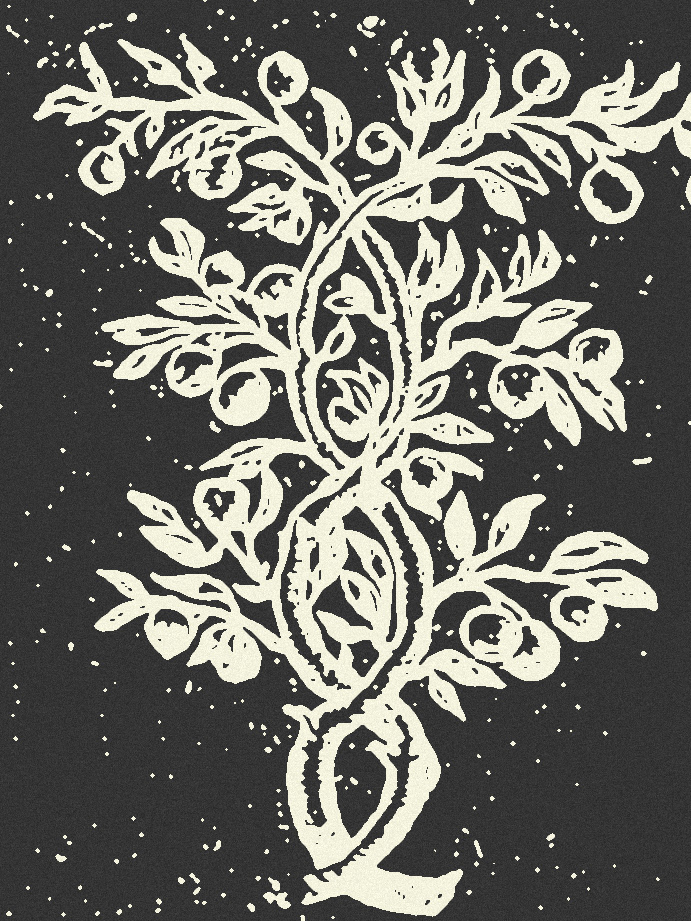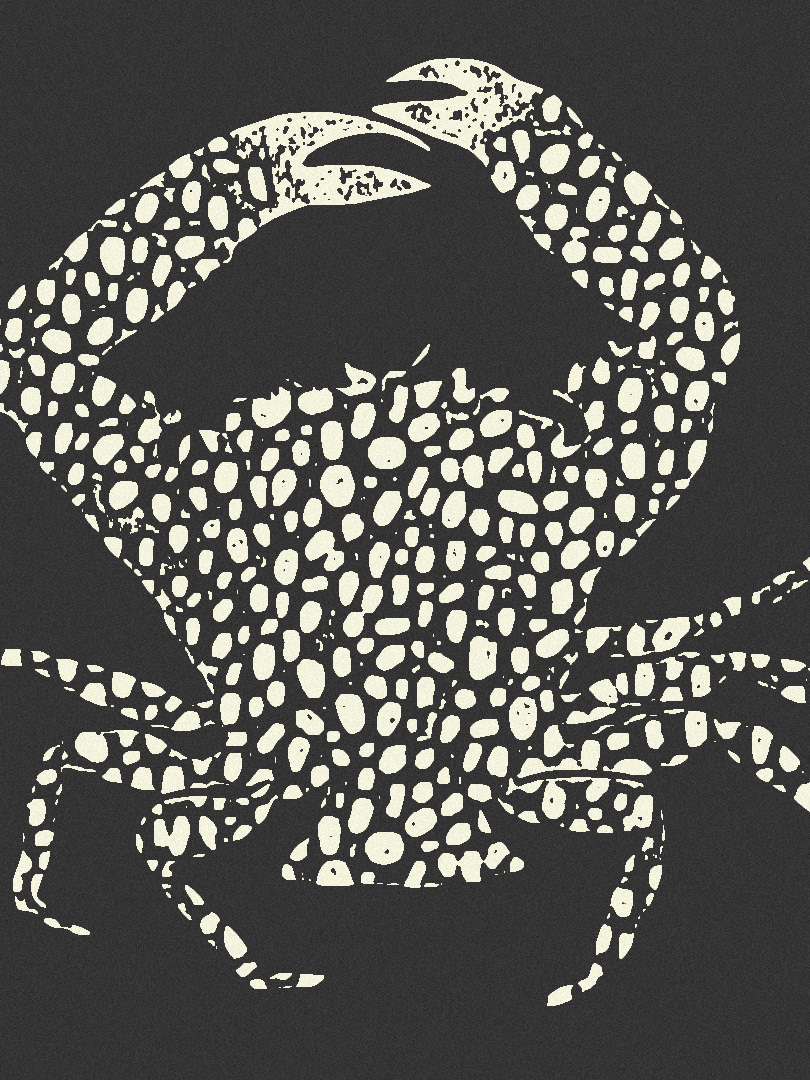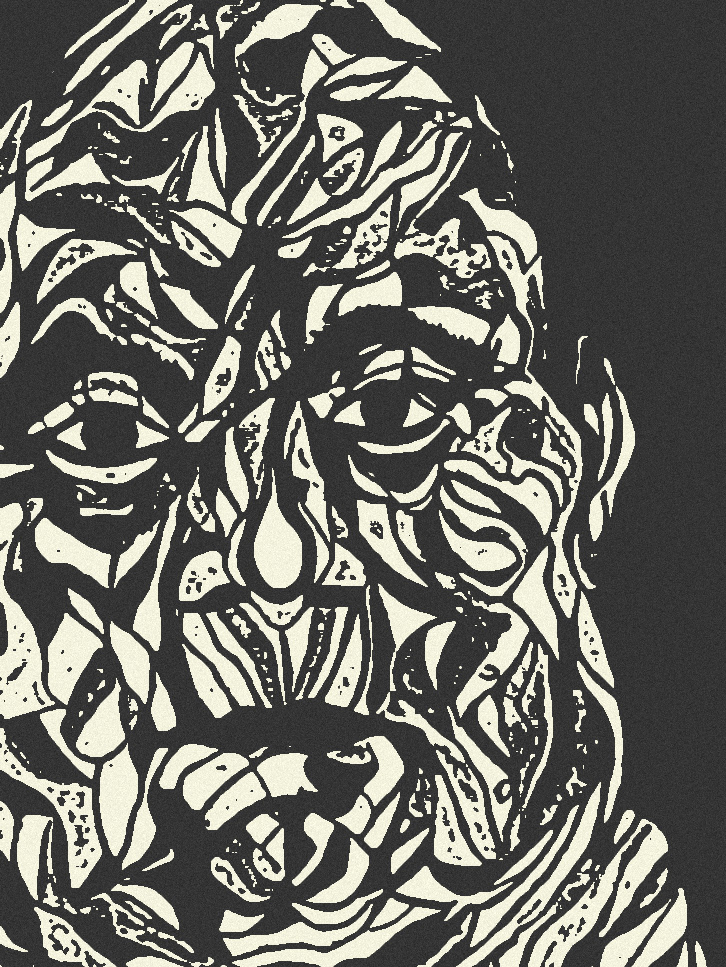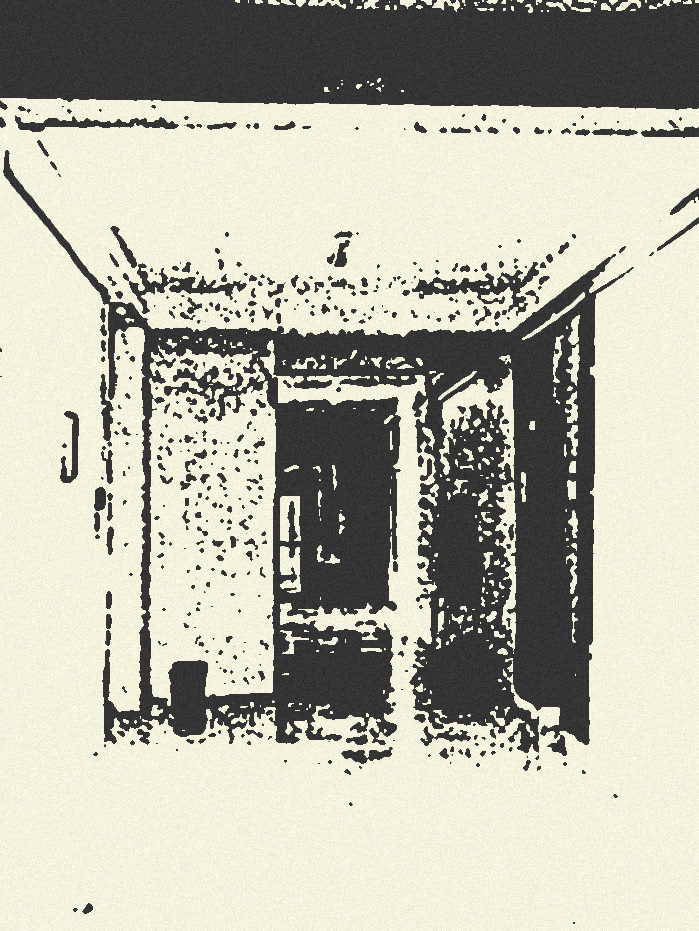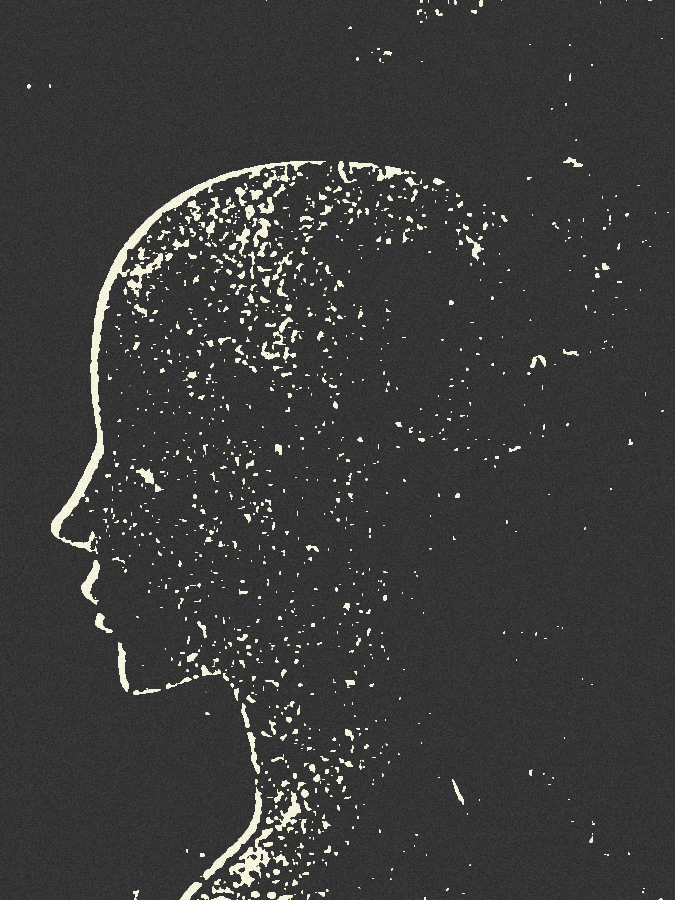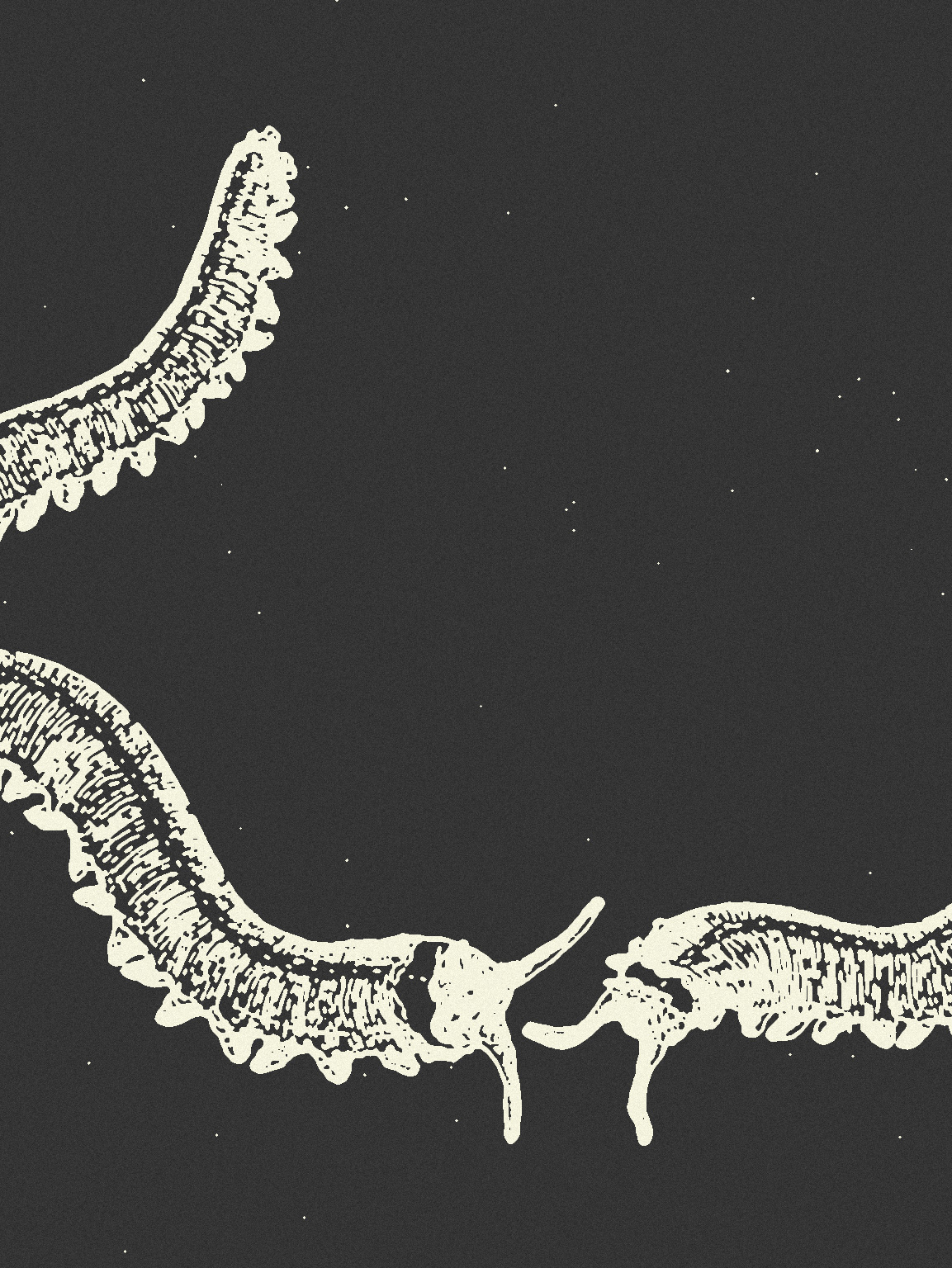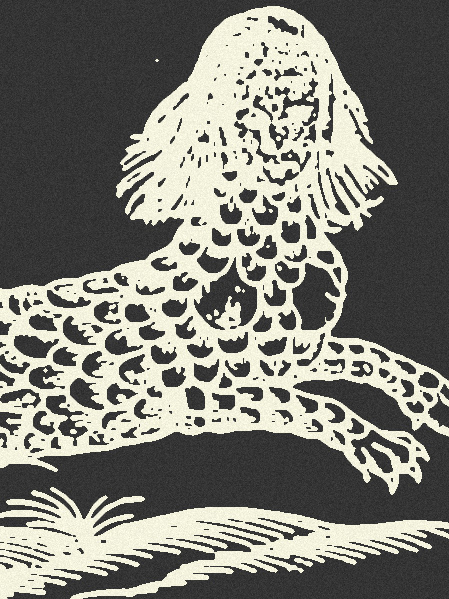✷
You know you’re dreaming, but it feels like waking: sitting up in a bed that’s not your own.
A canopy closes you off from the world, pale curtains grazed by an evening breeze. The sheets are silk, cool and sleek against your skin. To your left is shadow. To your right, a yellow glow sifts through the drapes.
Your husband’s side of the bed is empty—no indentation on the pillow. The mattress cradles you, soft and yielding, and you understand that it’s not too late: you can lie back down, close your eyes and choose a different dream.
Or explore this thing stirring in your heart.
With one hand on the bedpost, and a fistful of cloth in the other, you hold your breath and draw back the curtain. The room takes shape around you. Your gaze is drawn to the candle on the bedside table, flickering in its chamberstick. The light stings your eyes, and as you shield them you see that you’re wearing a nightgown hemmed in delicate lace. The sleeves and skirt flow freely, but the fabric clings to your waist and chest, so thin it’s almost sheer.
When your bare feet touch the hardwood floors, the shiver that runs through you is enough to chase you back to bed. Instead, you cross the room and shut the window, cutting off the wind’s chill. You peer at the grounds below, a fountain and flowering hedges, a garden cloaked in night.
Quiet falls, but the cold remains. The fireplace is dark, so you tour the room by candlelight: an antique chair in one corner, a writing desk in another. A bookshelf of leather tomes. An oval-mirrored vanity that you pass with averted eyes.
A painting hangs over the fireplace, a portrait of a woman in a long red dress. She has blonde hair and pale skin, but her face is shadowed. She’s standing in the background, in the far corner of the room—as if intentionally putting herself just out of reach.
You find the door and turn its brass knob. The hallway is narrow, though the ceiling stretches high, peaking somewhere in the dark. A long, ornate rug lines the floor; the walls are stark and empty, the identical doors all closed. A grandfather clock stands watch at one end of the hall.
From the belly of the house—below you, and away from the edges—you hear a low, droning sound, followed by another at a slightly higher pitch. The sounds bring to mind old churches. Funerals, solemnity. The candle guides you down the hall toward the noises, which begin to resemble music.
You descend a wooden staircase, then turn the corner. You feel lightheaded, out of balance, as you take in the room: a large parlor with red velvet couches and a gold chandelier that casts light from the ceiling. The wallpaper glistens, pink with a gilded pattern. The room smells like lavender; fistfuls of the flower are displayed in tall, thin vases on tables and mantles. The focal point is a massive organ, its bronze pipes encased in gothic carvings.
Stepping closer, you see your error—feel it grip you. The focal point is not the instrument itself. Your eyes are drawn to (you lose your breath to) the woman seated at the organ’s bench: blonde hair cascading in waves down her back above a heavy mauve dress with billowing sleeves. The woman’s long fingers stroke the rows of keys with smooth dexterity.
The way she holds herself captivates you, from the straightness of her spine and the angle of her chin to the careful arrangement of her skirt and hair, every fold and strand in position. You wish she’d turn and show her face.
In a pause between notes, you hear a sound. A faint rustling, a whisper that reminds you of your husband’s voice—and your heart jumps to your throat. But the hallway behind you is dark; the room once again echoes with the organ’s somber chime. You reassure yourself: he has no place here. He is asleep in another world.
You inch forward, just enough to set the chamberstick down on a table. Your breath is strained, as if the air’s grown thin. You walk, stepping softly, to the center of the room, pausing just beyond the chandelier. Studying the folds in the woman’s thick skirt, satin that swells at her hips like a gown. Her waist is small, delicate, accentuated by the boning in the dress. You want to run your palms over those curves, press your pelvis to her back—an image that makes you flush, as if a fire’s been lit in your torso. Below the organ, you hear a murmur, like a woman’s stifled laugh.
One step at a time, you cross the room. The music trembles like thunder in your chest. The woman is wearing long sleeves that end in lace cuffs. Golden rings on her fingers bear precious stones, pearls framed by black onyx and amethyst. You know she’ll sense your presence soon, hear your ragged breath—maybe even the pounding of your heart.
You brace yourself: at any moment, her head will spin, your eyes will meet.
But as you near the organ, the woman withdraws her hands, folding them in her lap. She doesn’t move, posture intact. The room falls into silence, except for your final footfalls. You don’t dare to venture closer.
And then, the voice: sweet with an edge, like raw honey.
“Of whom do I have the pleasure?”
For a moment, your throat betrays you. You finally manage to choke out one word, your name. She doesn’t ask any further questions.
“I’m Marie,” she replies in kind. “Do you know why you’re here?”
You feel your body respond, that heat rising once more to your face.
In that moment, she turns. And for half a second, you think you see something monstruous—bloodshot eyes and snarling mouth, contorted features that throw ice water onto your fire—but whether you really saw it, or imagined it, anticipating the worst, is impossible to say.
In the present moment, she’s lovely: pink, full lips and eyes like amber, cheekbones that reign over symmetrical features. A stare so commanding it makes you dizzy. Her dress has a high collar that blooms below her chin, and it reminds you of your frail nightgown, how it exposes the ebbs and flows of your body. You cross your arms over the pit in your stomach, shoulders curling inward.
Marie smiles, closed-mouthed and wry.
She rises from the bench. Your breath catches as she walks toward you, her skirt rustling in the quiet, its width and depth intimidating. She’s exactly your height, so you’re face to face when she pauses, lips and nose and eyes inches from yours.
You want to lean in, but you’re locked in her stare. She smells like jasmine and something vaguely bitter. Fear and desire wrestle inside you. Finally, one holds the other down.
You move toward her lips—and she raises a hand, those long fingers grasping your chin.
“No,” she says. And it feels like falling, like the ground beneath you giving way.
Marie’s eyebrows furrow, just slightly. “You’re not ready,” she says.
“Not ready?” You’re glad for her fingernails biting into your skin, keeping you standing and grounded, preventing you from waking. “This is just a dream.”
Marie smiles, then, more shrewd than gentle. Slides her hand to the back of your neck, caressing the valleys in your spine. You shiver. She says, “My dear. Nothing is ever just a dream.”
She studies you. Her gaze traces your outline, cuts through your center, like a knife peeling skin from bone. When she meets your eyes, her own are distant.
“What are you willing to forsake?” she asks, the words wispy, barely formed. Your lips part, but you realize it isn’t a question directed at you, not one you’re meant to answer.
Marie drops her hand—you don’t faint or lose your footing, though you feel her absence—and strides, broad skirt trailing behind her, toward the candlestick you left burning by the door. She carries it into the shadowed hallway. You know without being told that you’re meant to follow.
You go down another flight of stairs. The walls here are bare stone, and the way is damp, the air humid, the steps slick beneath your feet. You can’t see beyond the candle’s glow. The stairway curls into a narrow spiral, and you conform to each sharp turn, feeling almost dizzy as you descend below the house.
The final step levels off. You enter a room that could be as small as a lounge or as wide as a ballroom: darkness clings to the space like a shroud. The scents of mildew and iron hang heavy. Marie leads you toward the only visible furnishing, a low platform adorned with white lace, lit with votive candles spaced like flickering stars.
Marie steps aside so you can look more closely. You crouch down to study her collection, the array of objects on this tiny altar. There are dozens: a wooden cross; a black-and-white family portrait, adults and children squeezed into the frame; a newborn’s onesie; a diary with a cracked spine; a sealed letter; a wedding ring. Stains coat the lace, red-brown blemishes like rust or dried blood.
You stand and face Marie, who is silent. Expectant. You look down at yourself—barely clothed, palms open and empty.
“I don’t have anything to give,” you say.
Marie bends down, setting the candle at her feet. When she rises, you can’t see much beyond the glimmer in her eyes.
“We’ll see,” she says.
As she moves toward you, time seems to slow. You’re aware of every detail: the ringed fingers of her right hand, one at a time, curling around your waist, fingernails digging into your skin, so that you’re frozen where you stand. Her left hand on your neck, thumb pressed against the indent in your throat.
She steps closer, sways toward you. Her hips and torso rock against your own, so that you shake, your breath is strained—you’ve never felt so helpless, or so willing. And she knows it, tightens her grip and cranes her neck.
She kisses you, and as her lips spread wide—as your own part on instinct—you feel something open inside you. Irreversible, like a flower, its petals unfurled, that can only decay.
You flinch beneath her hands, but you can’t bring yourself to pull back from the kiss; its warmth and wetness overtake you.
Though you could have stayed suspended in that moment, Marie’s mouth finally slows. Her hands soften, and her body shifts, creating space between you. She steps back and studies you, face carefully blank, hands folded at her waist.
And then she nods, like she’s satisfied.
“Place your offering,” she says.
You feel a weight in your hands. A fullness, a softness, at once strange and familiar. Your stomach twists, and you don’t want to look down but you’re helpless. Open.
Your fingers are in his hair, thumb against his cheek. One hand supporting the base of his neck, palm wet with his blood. You look down at your husband’s face, eyes glassy, mouth hanging open. You can see where the head was detached from the spine, cut clean.
You scream—a sound you didn’t know you could make, raw and feral.
Someone grips your arm from behind. You hear your husband’s voice—calm, insistent—but his lips are listless, eyes unseeing. A sob catches in your throat, and you hear him call your name.
You open your eyes to soft gray light, seeping through familiar curtains. The worn pillowcase, the scent of the sheets, the quilt tangled in your legs—all of it calls you back to your waking life.
Your husband is here: lying beside you, his hand on your arm, gaze steady.
“You were crying in your sleep,” he says, sweeping his thumb across your cheekbone. Searching your face in the quiet, the low light of daybreak. “Who’s Marie?”
✷
Elizabeth Anne Schwartz (she/her) writes sapphic fiction and poetry, and loves all things dark, lyrical, and confessional. She earned her BA in Creative Writing at Purchase College, and has work featured or forthcoming in Sage Cigarettes, Tension Literary, and Beyond Queer Words, among others. Her poetry chapbook, Nine Stages of Coming Out, was recently published by tiny wren lit. Visit her website at elizabethanneschwartz.carrd.co

